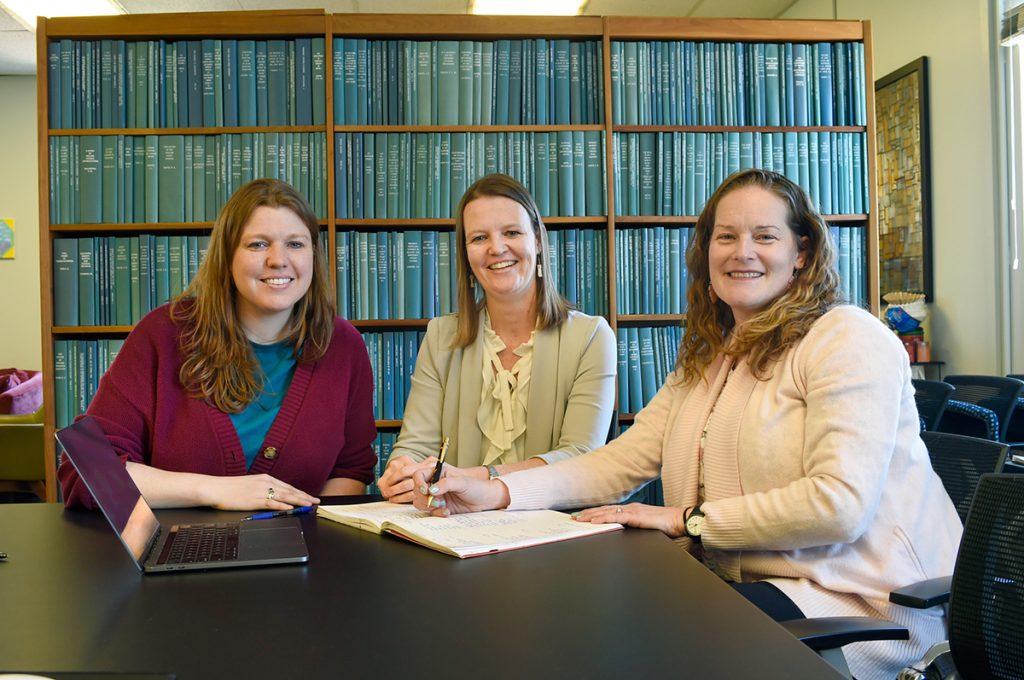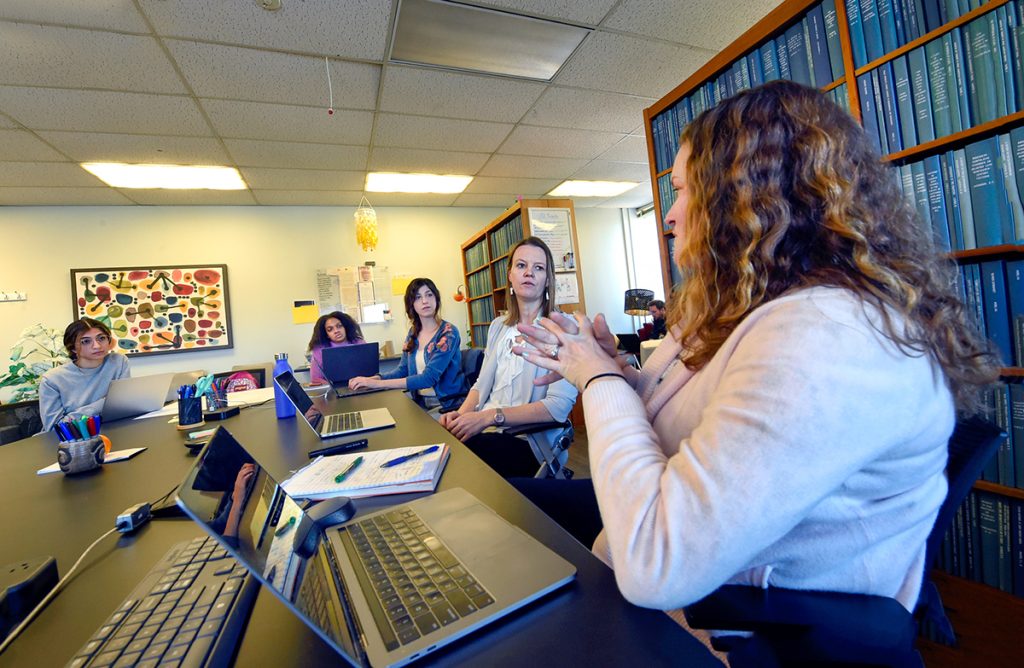
A new initiative in the College of Arts and Sciences is enhancing the support of scholarly activity among humanists and humanistic social scientists at UNC-Chapel Hill.
The Arts and Humanities Grant Studio was created in 2023 as a successor to the Humanities for the Public Good initiative, a multi-year effort funded by the Mellon Foundation.
“Humanities for the Public Good created important momentum for the humanities at UNC,” said Elizabeth Engelhardt, senior associate dean for fine arts and humanities in the College of Arts and Sciences who initiated the new studio’s creation. “We knew it was important to continue to build on this network of creativity and innovation. Our aim is to create space for our most creative and artistic minds, to build projects and teams that engage our campus and state communities broadly and grow over time to support big, ambitious ideas.”
The Arts and Humanities Grant Sudio reinforces the work of the University’s leading faculty, staff and student humanists and collaborative artists, assisting with the workload of and cultivating growth for grant-funded projects, said Ashley Melzer, studio director. It helps by providing grant support – linking people from different parts of campus to widen a project’s appeal for funding – as well as programmatic and event planning assistance. It also emphasizes storytelling in each of its six supported projects:
- Illustrating effective data-sharing in the digital humanities, using findability, accessibility and reusability principles, with a public database of images
- Growing the profile of Southeast Asia studies at UNC
- Exploring the relationship between technology and humanity through visual art and music
- Building relationships between community and the creation of new plays at PlayMakers Repertory Company
- Supporting a study on the impact of the National High School Ethics Bowl
- Collecting oral histories around the topic of chemical pollution.
The researchers conducting these projects come from all parts of campus.
“We focus on interdisciplinary work, because diverse teams look at problems in different ways,” Melzer said. “They often solve those problems faster.”
The studio has its own diverse team as well. Melzer works with three postdoctoral students, and together their backgrounds and research experiences include opera administration, audience development, podcasting, print culture folklore and religious history. The team meets every week to share notes about each project’s progress and activities.
“That’s an important part of our ethic, to learn from each other,” Melzer said.
In addition to current projects, Melzer and her studio team are open to supporting and learning about new projects and available for consultations. They hold open office hours on Thursdays at 2 p.m. at the Anne Queen Faculty Commons Room, the lounge in the Campus Y.

Storytelling highlights the impact of “forever chemicals”
The idea to build a story archive on the topic of PFAS or “forever chemicals” in North Carolina came from Jordynn Jack and Courtney Rivard, both professors in the department of English and comparative literature. Jack is founding director of the Health and Humanities (HHIVE) Lab, and Rivard directs the Digital Literacy and Communications Lab.
PFAS is an abbreviation for per-and polyfluoroalkyl substances, a family of over 5,000 chemicals that are byproducts in the production of everyday household items and have made their way into drinking water sources around the world. UNC is leading the way with scientists working on the problem of PFAS.
Their oral history project aims to bring humanistic research methods to the study of PFAS contamination and remediation efforts. Mariah Marsden, a postdoctoral student, writer and folklorist, is helping Jack and Rivard gather as many oral histories as they can over the next three-plus years to illuminate how individuals in North Carolina are impacted by health care experiences that could be linked to PFAS.
The two English scholars had individual inspirations about the subject of water pollution. Jack’s rural hometown of Chatham, Ontario, is largely farmland, but industrial wind turbines have been placed on farmers’ land (with their permission.) And some residents began to notice grit in their well water.
“They talked about how a well that had been drilled by a grandfather had been perfect for 50 years until the wind farm moved in,” Jack said. “Some indigenous communities in the area got involved as activists, and they brought another lens of thinking about water in terms of the lifecycle and the importance of water as being alive.”
Rivard had read news stories about PFAS being found in the Haw River, which serves as the town of Pittsboro’s only source of drinking water. Much of the news covered important scientific information about PFAS but didn’t include as much about the lived experiences of people who had been exposed.
“We wanted to know more not just about the science but about how people understand their relationship to this kind of contamination,” Rivard said. “How are they telling stories about this? And how can that help create positive change?”
The oral histories that the team collects will become part of UNC’s Southern Oral History Program, which celebrates 50 years this year.
Melzer said the initiative is intentionally called a “studio,” and that name is meant to invoke both real work and a sense of play.
“A studio is a place where you go to practice your art,” she said. “That practice is a humanistic value: We are learning through action. We’re not trying to prove something — we’re just practicing. And an ongoing relationship with the work means that you’re constantly responding to the moment.”
The Arts and Humanities Grant Studio is supported by funding from the Dean’s Office, the Townsend Family Strategic Initiatives Fund in the College, the Office of the Vice Chancellor for Research and the School of Data Science and Society.
To learn more about the work of the studio and to reach out to the team, visit grantstudio.unc.edu.
By Claire Cusick (M.A. ’21), College of Arts and Sciences
